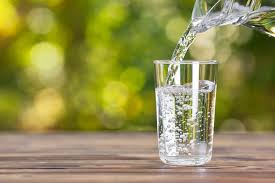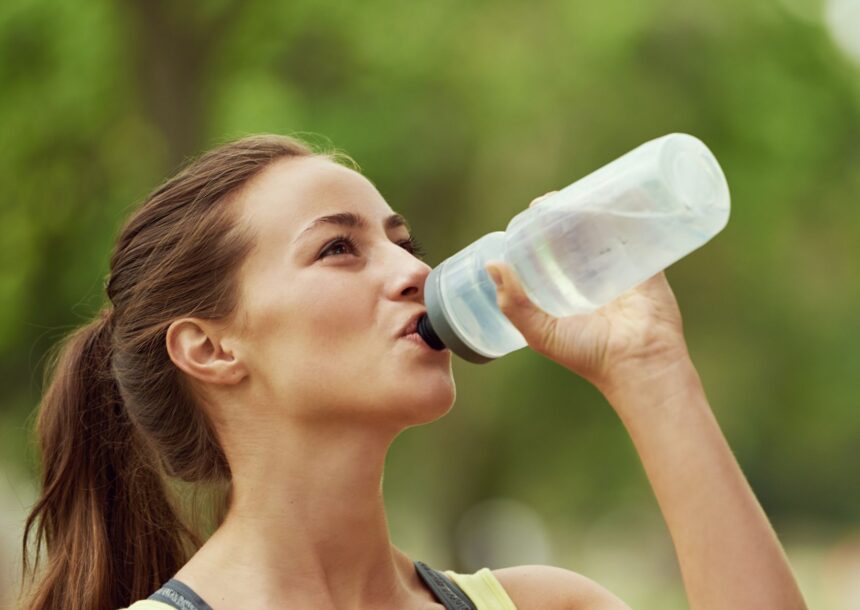When it comes to maintaining good health, hydration often doesn’t get the attention it deserves. Proper water intake is essential for your body to function optimally, but many people still overlook this crucial aspect of their daily routine. In this blog post, we’ll explore why hydration is so important, how much water you should be drinking, and how to make sure you’re meeting your daily water intake needs.
The Importance of Hydration for Your Body
Water is the most vital nutrient your body needs to perform various functions. From regulating body temperature to promoting digestion, every system in your body relies on water to operate efficiently. Dehydration can result in fatigue, headaches, dry skin, and difficulty concentrating, among other symptoms. Ensuring you maintain optimal hydration levels is a key step in staying healthy and feeling your best.
A significant portion of your body weight—roughly 60%—is made up of water. Your body needs a constant supply of water to perform essential functions like transporting nutrients, flushing out waste, and lubricating joints. Without enough water, these processes can be compromised, leading to a range of health issues. In fact, even mild dehydration can cause discomfort and negatively affect your performance both physically and mentally.
How Much Water Do You Need?
There’s a lot of debate surrounding the exact amount of water a person should drink each day. The traditional advice of drinking eight 8-ounce glasses of water is often cited as a good guideline, but the truth is that individual needs vary. Factors like age, gender, activity level, climate, and overall health play a role in determining how much water you need.
Generally, a good starting point is to aim for about 2.7 liters (91 ounces) for women and 3.7 liters (125 ounces) for men per day, as recommended by the National Academies of Sciences, Engineering, and Medicine. However, it’s important to listen to your body’s signals. Thirst is a natural cue, and if you feel thirsty, it’s a sign that your body needs water.
Factors That Influence Your Water Intake
Your water intake needs can vary depending on a variety of factors. For instance, physical activity increases the body’s water requirements, especially if you’re exercising in hot or humid conditions. When you sweat, you lose both water and electrolytes, making it crucial to replace lost fluids to prevent dehydration.
Additionally, if you’re pregnant or breastfeeding, your body will require extra hydration. Pregnancy and lactation both increase fluid needs to support your body and your baby. It’s always wise to consult your healthcare provider for specific hydration advice during these stages.
How to Increase Your Water Intake
If you struggle to meet your daily water intake goals, you’re not alone. Many people find it challenging to drink enough water throughout the day. Fortunately, there are simple ways to ensure you stay hydrated. One helpful tip is to carry a reusable water bottle with you. This way, you can easily sip water throughout the day and keep track of how much you’re drinking.
Adding a splash of flavor to your water can also make it more appealing. Infuse your water with fruits like lemon, lime, or berries to enhance its taste and encourage you to drink more. If plain water isn’t your favorite, try herbal teas, which can also contribute to your hydration needs.
Signs You’re Not Drinking Enough Water
It can sometimes be difficult to gauge when you’re dehydrated, especially in the early stages. Some common signs of dehydration include:
- Dry mouth or throat
- Dark yellow urine
- Fatigue or lethargy
- Headaches or dizziness
- Dry, flaky skin
If you notice these symptoms, it’s a signal that your body needs more water. It’s essential to act quickly by increasing your fluid intake to avoid worsening dehydration.
The Role of Water in Weight Management

Interestingly, water can play a significant role in weight management. Drinking water before meals can help you feel fuller and prevent overeating. Additionally, water is a zero-calorie beverage, making it an excellent choice for anyone looking to reduce their overall calorie intake. By swapping sugary drinks with water, you can lower your daily calorie consumption and support your weight loss efforts.
Studies have shown that drinking water can temporarily boost your metabolism, helping your body burn calories more efficiently. Hydration also aids digestion and prevents constipation, ensuring that your digestive system operates smoothly.
Hydration and Skin Health
One of the most visible benefits of proper hydration is improved skin health. Water helps keep your skin moist and supports its elasticity, reducing the appearance of fine lines and wrinkles. When your body is dehydrated, your skin can become dry, dull, and more prone to irritation. Drinking plenty of water ensures that your skin retains its natural glow and stays healthy.
Water also helps flush out toxins, which can contribute to acne and other skin conditions. By drinking enough water, you can promote clear, radiant skin from the inside out.
The Connection Between Hydration and Mental Health
Not only does hydration affect your physical health, but it also plays a role in your mental well-being. Studies have shown that dehydration can negatively impact mood, cognitive function, and concentration. If you’ve ever felt “foggy” or struggled to focus, it may be a sign that your water intake is insufficient.
Staying hydrated is linked to better memory retention, improved mood, and increased alertness. Dehydration can also lead to feelings of anxiety and stress, so maintaining proper hydration levels is essential for mental clarity and emotional balance.
How to Make Hydration a Daily Habit
Building good water habits doesn’t have to be difficult. A great place to start is by setting a reminder on your phone to drink water at regular intervals throughout the day. Keeping a water bottle on your desk or by your bed can also help you stay on track.
Consider tracking your water intake using a hydration app. These apps can help you visualize your progress and remind you when it’s time to drink more. Over time, staying hydrated will become second nature, and your body will thank you for it.
Final Thoughts
Water intake is an essential part of maintaining good health, but it’s often overlooked. From supporting your organs and tissues to enhancing your mental clarity, hydration is key to feeling your best. By understanding the importance of hydration and committing to a consistent water intake, you can improve your overall health and well-being.
Remember, everyone’s hydration needs are different, so it’s important to listen to your body and adjust your water intake accordingly. Whether you’re an athlete, a busy professional, or just looking to improve your general health, ensuring that you drink enough water each day is one of the simplest—and most effective—ways to stay healthy.
If you’re unsure about how much water you should be drinking, don’t hesitate to consult with a healthcare professional who can provide personalized advice based on your lifestyle and needs. So, grab your water bottle and start making hydration a top priority for your health!
